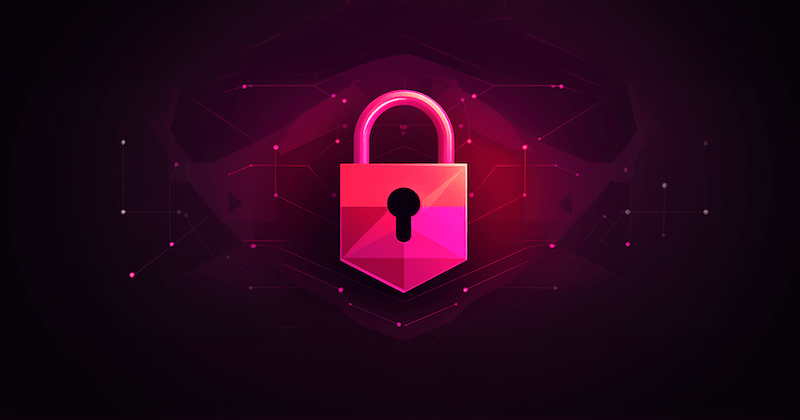Table of Contents
ToggleSecuring your digital assets is paramount in the realm of remote work, where the threat of security breaches looms every 39 seconds. This alarming frequency underscores the vulnerability faced by remote workers, making trust in digital environments a formidable challenge. In regions such as Ecuador and Cuba, where awareness of robust security practices may be limited, navigating this landscape becomes even more critical.
The disconcerting prevalence of cyberattacks necessitates a proactive approach to fortify your virtual workspace. Amidst these challenges, adopting effective strategies becomes imperative. By incorporating specific tips and tricks tailored to the remote work context, you can ensure the safety of the data you handle. Selecting appropriate tools and adhering to best practices emerge as key components in building a resilient defense against potential breaches, guaranteeing the security of your invaluable data.
Understanding Cybersecurity Risks for Remote Work
To ensure robust protection, a fundamental step is comprehending the diverse array of risks inherent in remote work. The landscape of potential threats is vast and often unexpected, intertwined with the routine activities of daily work.
An overarching concern lies in unsecured networks, particularly those lacking password protection—commonly found in locations offering free internet access. Digital nomads, who frequently rely on such networks, face heightened security risks. Despite the soaring demand for remote jobs, it is imperative to prioritize cybersecurity even while on the move.
Yet, unsecured networks represent just one facet of the risk spectrum. Additional threats encompass ransomware, weak passwords, phishing scams, and file sharing—each posing potential challenges for remote workers.
Ransomware, in its simplest form, restricts access to computers or systems until a ransom is paid for restoration. More sophisticated variations may involve the release of private information to the public or its sale to competitors, adding complexity to the potential fallout.
The seemingly innocuous act of using easily memorable passwords poses a substantial risk. While simplicity aids recollection, it significantly heightens susceptibility to cyberattacks. Simultaneously, the necessity of file sharing in remote work introduces vulnerabilities, as cyber threats can exploit the transfer process.
In navigating the intricacies of remote work cybersecurity, acknowledging and mitigating these specific risks becomes instrumental for safeguarding sensitive information and sustaining a resilient digital defense.
Essential Cybersecurity Tips
There are some things that you can do to protect yourself from cyberattacks. Some of these things might be common sense, but for the most part, they’re easy to incorporate. Being sure to stay on top of all these areas can help to ensure that your digital security is properly protected.
Educate Employees on Cybersecurity Risks and Practices
Half of the battle is just knowing what things put you at risk. The other half of the battle is being sure to be educated about the risks. Then, you can implement the best practices to ensure cybersecurity across teams who work remotely.
Regularly Backup Digital Documents and Data
It’s so easy for a file to become corrupted. That’s why having all your data and documents backed up is so important. Backing up data and documents allows you to be prepared should the worst happen. It’s also super easy to set up regular backups, so you don’t have to worry about performing it manually.
Importance of Software Updates for Security
Skipping a software update, or delaying it, is as easy as a click of a button. Sometimes, updates are suggested when you’re right in the middle of something important. However, software updates are initiated for a reason. While occasionally, it’s because of new features, much of the time, it’s to keep software secure from cyberattacks. Running updates is incredibly important.
Implementing Strong Password Policies
You may easily remember the name of your first pet or the street you grew up on. But, the more sophisticated cyber-attacks become, the more important strong passwords are. Unique passwords should be used for every different login. Passwords should also use both characters and numbers and be at least 12 characters long. Using a password management tool is very useful in maintaining strong passwords.
The Role of Two-factor Authentication in Enhancing Security
Two-factor authentication adds another layer of security to any place where a login is necessary. A password alone isn’t enough to stay secure, particularly with remote work. While passwords may be stolen easily, one-time codes, fingerprints, and more can be used for authentication purposes. Don’t skip suggestions to employ two-factor authentication, as they make your remote workspace much more secure.

Installing and Updating Antivirus Software
Home networks are frequent targets for hackers. Typically, corporate networks are considered too secure, and home networks are more easily hacked. Because people frequently ignore the security of their home networks, hackers focus their efforts there. Antivirus software is designed to locate and identify viruses, as well as prevent them. Be sure to update your software regularly to prevent security issues.
Awareness About Wi-Fi Scams and Safe Practices in Public Spaces
Wifi scams, or wifi phishing, can happen when a public access network is created that appears similar to another network. These networks are usually trusted networks, so users may not think twice before selecting a network that looks the same. Falling victim to this scam network opens up easy access to all your sensitive information.
Protecting yourself from this can be a little more complicated than other types of attacks. Be sure to avoid automatically connecting to networks. If you’re in a public space, disable file sharing until you’re on a secure network. Using a firewall is also a good practice and is highly recommended to increase security.
Finally, avoid opening any email attachments that are from unknown senders, as these are frequent security threats and targets. If you need to open an email attachment, be sure to use software that scans for potential viruses or issues to stay secure.
Using VPNs for Secure Remote Connections
A VPN can be an incredibly useful tool for remote workers. A VPN is a virtual private network, and it encrypts your connection between a computer and the network. VPNs are a much more secure way to use the public internet because they add a shield layer to your connection. It makes your online activity more difficult to track and, therefore, more difficult to hack.
Securing Home Computers and Personal Networks
Rather than assuming your home network is safe, you should employ these tactics with your network as well. Ignore the idea that this is overkill, and instead, adapt your home network with cybersecurity in mind. Make sure that your home network is secured with a complex password that can’t be easily guessed. Also, update the password from time to time.
Recognizing and Avoiding Phishing Scams
As quickly as all technology changes, so do scams. Being able to recognize a scam helps your information be more secure. Phishing scams often happen via email and may have one of several characteristics. They may appeal to your emotional side, they may ask for personal information, and they might include incorrect links.
Best Practices for Secure Remote Working
Ensuring the safety of your data during remote work is paramount, and adhering to established best practices is pivotal in achieving this goal. Here are key guidelines to fortify your remote work security:
- Device Approval: Limit access to essential areas by exclusively using approved devices. This practice minimizes the risk of unauthorized entry into sensitive domains.
- VPN Utilization: Enhance security by utilizing a Virtual Private Network (VPN). This encrypts your internet connection, safeguarding data transmission and protecting against potential breaches.
- Cautious Link Clicking: Exercise prudence when clicking on links. Assess links carefully before engaging, ensuring they are from trusted sources. Avoid blindly clicking to mitigate the risk of falling victim to phishing scams or malicious content.
- Network Selection: Connect only to networks you trust, prioritizing secured networks to thwart unauthorized access and data interception.
- Regular Software Updates: Routinely perform recommended updates for your software. These updates serve a crucial role in bolstering cybersecurity measures. Designed with the evolving threat landscape in mind, they act as a proactive defense, preemptively addressing vulnerabilities and safeguarding your device network from potential compromise.
By conscientiously integrating these best practices into your remote work routine, you fortify your defenses and contribute to a secure digital workspace.
Protect Your Remote Work from Cyberattacks
It can be easy to let your guard down, and ignoring updates or skipping two-factor authentication is fast and easy. However, when working in a remote environment, you should always remain vigilant. Nearly anyone can be hacked, but following simple procedures can help ensure that doesn’t happen to you and your data.
Cyberattacks happen so frequently across the world that the statistics are staggering. That’s why using best practices is so important. Rather than letting your data be compromised, be sure that whoever is doing the hard work is safe.
At Virtual Latinos, we take these requests seriously and strive to educate our virtual assistants while providing them with tools to ensure their remote work is safe.
Apply to Become a Virtual Assistant
Embark on a transformative journey with Virtual Latinos. As a virtual assistant, you’ll not only contribute to the efficiency of remote work but also gain access to invaluable resources for personal and professional growth. Don’t just secure your data – secure your future. Apply now to join a community dedicated to excellence in remote assistance. Your next rewarding career step awaits!







